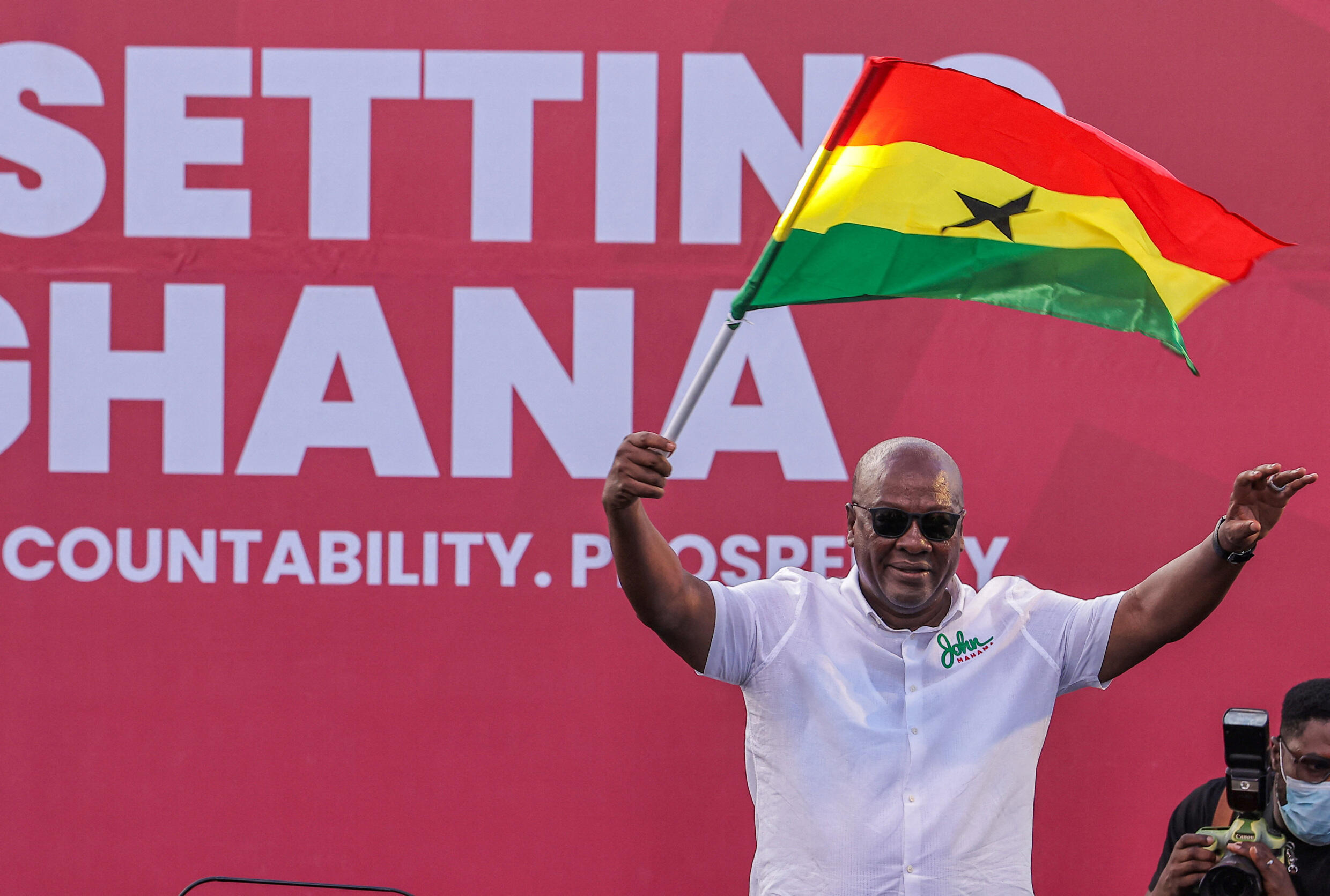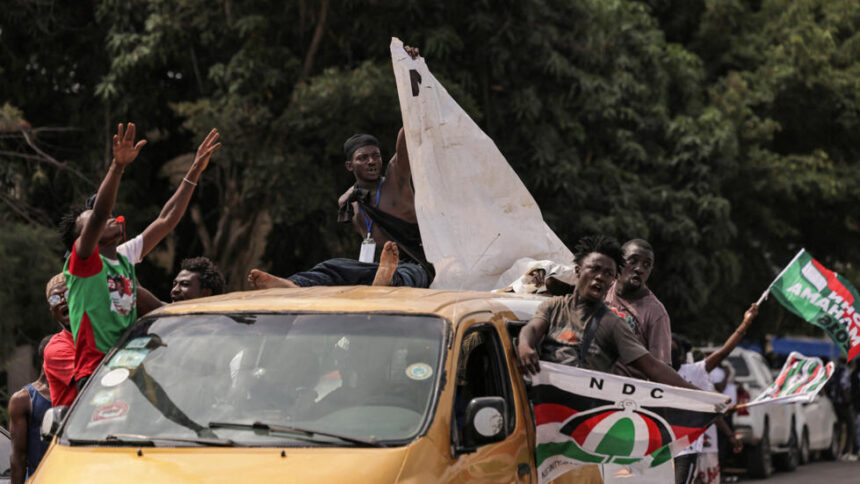Ghana’s Vice-President Mahamudu Bawumia has conceded defeat in Saturday’s presidential election, paving the way for opposition leader and former President John Mahama to reclaim power.
Mahama’s victory marks a seismic shift, ending the New Patriotic Party’s (NPP) dominance since 2016. Early results suggest the NPP may have suffered its worst defeat in decades, potentially securing less than 45% of the vote for the first time since 1996.
This outcome reflects widespread public frustration over soaring living costs, high-profile corruption scandals, and a crippling debt crisis that undermined the government’s credibility.
Jubilant crowds poured into the streets across Ghana, celebrating what many see as a fresh chapter for the country. This political transformation mirrors a broader trend across Africa, where governments are increasingly being held accountable by electorates demanding change.

Ghana’s election caps a year of remarkable political upheaval across the continent, during which five countries, including Botswana, Mauritius, Senegal, and the self-declared republic of Somaliland, saw ruling parties ousted. Many of these elections delivered landslide victories for opposition movements, signaling growing dissatisfaction with entrenched regimes.
In Botswana, the Botswana Democratic Party (BDP), which had ruled since independence in 1966, was nearly wiped out, retaining only four seats in a 69-member parliament after October’s general election. Similarly, Mauritius experienced a dramatic political realignment in November, as the Alliance Lepep coalition secured only 27% of the vote, with its rival sweeping 60 of 66 parliamentary seats.
Senegal’s election followed a similar pattern of rejection for the ruling elite. Opposition leader Bassirou Diomaye Faye, imprisoned just weeks before the vote, was released under mounting pressure and subsequently won the presidency outright, dealing a severe blow to the incumbent government’s candidate, who secured only 36% of the vote. Even in cases where ruling parties retained power, their dominance was significantly diminished. South Africa’s African National Congress (ANC) fell below 50% of the vote for the first time since the end of apartheid, forcing President Cyril Ramaphosa into a coalition government.
Similarly, Namibia’s ruling party suffered its worst parliamentary performance, narrowly holding onto a majority amid widespread allegations of electoral irregularities.
These developments signal an intensifying demand for accountability and governance reform across the continent. Citizens have grown increasingly disillusioned with corruption, nepotism, and economic mismanagement, which have fueled opposition victories even in countries with long-standing ruling parties. In Botswana, Mauritius, and Senegal, governments lost credibility by failing to uphold democratic principles and the rule of law, while opposition leaders capitalized on public anger to secure resounding mandates for change.
The implications of these shifts are profound, marking a turning point for a region often associated with entrenched political systems. Ghana’s election is a microcosm of this broader trend, with John Mahama’s return to power underscoring the electorate’s frustration with unfulfilled promises and poor governance. As the continent looks ahead to 2025, leaders such as Malawi’s Lazarus Chakwera may face similar challenges, as voters across Africa continue to demand transformative leadership and accountability.
The past year’s political changes suggest that Africa’s electorate is increasingly unwilling to accept business as usual. With opposition victories reshaping the political landscape, governments must adapt to a new reality in which their hold on power is no longer guaranteed. For Ghana, Mahama’s victory symbolizes hope for a renewed focus on addressing the nation’s pressing economic and social challenges, while across Africa, the winds of change continue to blow.

